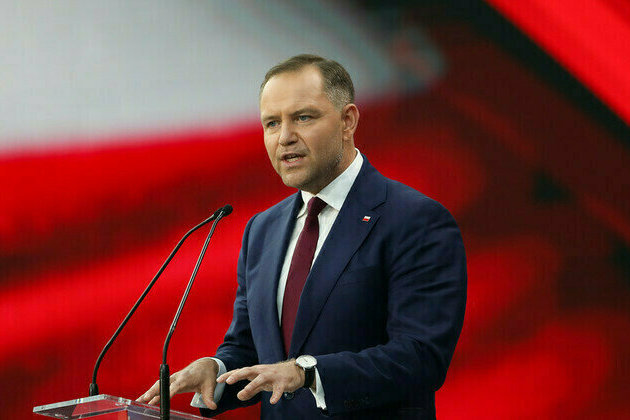How Bulgarias Property Market Could Shift After the Euro Adoption
Novinite.com
02 Jul 2025, 22:08 GMT+10

How will Bulgaria's property market evolve after the switch to the euro? This question concerns homeowners, investors, and prospective buyers alike. Typically, euro adoption triggers a surge in demand and price growth, attracting foreign investment. Yet, the currency change's impact cannot be viewed in isolation; broader economic conditions and interest rate policies are crucial factors.
In Sofia, the property market has already seen significant activity in early 2025. Data from Bulgarian Properties reveal that the average price of new apartments in the city reached approximately ?2,080 per square meter in Q1, marking an 18% increase compared to the previous year. Demand continues to exceed supply, accompanied by a rise in building permits. This momentum is largely fueled by expectations of further price growth post-euro introduction, along with buyers seeking protection against inflation through real estate investments.
Despite this upward trend, Sofia remains one of the more affordable European capitals in terms of housing costs and rents. However, the price gap with cities such as Budapest, Ljubljana, and Zagreb is narrowing rapidly. Analysts anticipate that with rising incomes and eurozone membership, the Bulgarian market will continue to grow, potentially aligning with property values seen in southern European cities. This makes the period surrounding the euro adoption particularly critical for all market players.
Looking at comparable cases, Croatia's entry into the eurozone on January 1, 2023, offers a useful example. In the first year after joining, the country experienced a roughly 13% rise in average housing prices, with the capital Zagreb seeing a 15-17% increase. The surge was driven by heightened domestic demand, an influx of buyers from Austria and Germany, and the widespread expectation that prices tend to rise following euro adoption. Tourism and investment interest in coastal areas further intensified this effect - though Bulgaria's market context differs, Croatia's experience signals a likely short-term price spike linked to currency change.
A similar pattern occurred in Slovenia after its eurozone accession in 2007. Large cities saw housing prices climb by 10-15% in the first year, especially in new developments, followed by a stabilization phase. However, these trends were influenced by wider economic factors such as the 2008 global financial crisis, which severely impacted property markets internationally. This highlights that while the euro introduction is significant, its real influence depends on complex economic, social, and market dynamics.
In contrast, Latvia's experience after adopting the euro in 2014 was more moderate, with house prices growing by about 4-5% in the first year. This restrained increase reflected the market's recovery from a deep slump earlier in the decade and the absence of speculative demand. Stricter banking regulations also helped keep growth measured, illustrating that in balanced markets without inflated expectations, the euro's effect on property prices can be subdued and more predictable.
Interest rates will play a pivotal role in Bulgaria's market moving forward. Joining the eurozone means adopting the European Central Bank's unified interest rate policy, which is expected to influence mortgage costs. Currently, relatively low borrowing rates are encouraging demand, but these may shift after euro adoption. On the other hand, the currency's stability and removal of exchange rate risk are anticipated to boost the market's attractiveness to foreign investors, potentially increasing demand and enhancing transparency.
For those considering buying or selling property, strategic timing is essential. Real estate agents suggest that buyers should act sooner rather than later, as current price growth already reflects eurozone expectations. Early buyers could benefit from potential appreciation, and securing fixed mortgage rates for five to ten years might offer protection against future interest hikes. Sellers, meanwhile, face a favorable market with strong demand and urgency among buyers, enabling better negotiation leverage. Post-euro adoption, demand might cool somewhat as market perceptions adjust.
Ultimately, while the euro introduction sparks short-term excitement, long-term real estate trends in Bulgaria will hinge on economic growth, income levels, interest rates, and market stability. Experts foresee steady, moderate price increases consistent with other European capitals. The months before euro adoption represent a critical window where careful planning can yield substantial advantages for both buyers and sellers alike.
Sources:
- Natalia Todorova, dir.bg
- Bulgarian Properties
 Share
Share
 Tweet
Tweet
 Share
Share
 Flip
Flip
 Email
Email
Watch latest videos
Subscribe and Follow
Get a daily dose of Germany Sun news through our daily email, its complimentary and keeps you fully up to date with world and business news as well.
News RELEASES
Publish news of your business, community or sports group, personnel appointments, major event and more by submitting a news release to Germany Sun.
More InformationEurope Business
SectionApple allows outside payment links under EU pressure
SAN FRANCISCO, California: Under pressure from European regulators, Apple has revamped its App Store policies in the EU, introducing...
British pound may go woke
The planned redesign reportedly seeks to replace historical figures with diversity themes A plan by the Bank of England (BoE) to...
How Bulgarias Property Market Could Shift After the Euro Adoption
How will Bulgaria's property market evolve after the switch to the euro? This question concerns homeowners, investors, and prospective...
Polish president-elect voices opposition to Ukraine joining EU
Karol Nawrocki has said that under current conditions Kiev should not be in NATO either Ukraine must meet specific conditions before...
Euro 2025: women's football has exploded - here's how it can grow even more
Aside from victory and sporting glory, the players in the women's Euro 2025 football tournament are playing for more money than ever...
NATO state to conscript women
A new law in Denmark subjects 18-year-old females to the draft starting July 1 Women in Denmark are now subject to conscription,...
Europe
SectionGreenback slides amid tax bill fears, trade deal uncertainty
NEW YORK CITY, New York: The U.S. dollar continues to lose ground, weighed down by growing concerns over Washington's fiscal outlook...
Dublin court lifts anonymity for Trinity College in plagiarism case
DUBLIN, Ireland: The High Court has lifted an anonymity order, allowing Trinity College Dublin and the Pharmaceutical Society of Ireland...
New French law targets smoking near schools, public spaces
PARIS, France: France is taking stronger steps to reduce smoking. A new health rule announced on Saturday will soon ban smoking in...
Methionine Restriction Could Extend Lifespan, Boost Health
VILNIUS, Lithuania – A growing body of research suggests that selectively restricting a single nutrient in our diet could have profound...
Ireland’s ex-minister Hanafin confirms bid for country’s presidency
DUBLIN, Ireland: Former government minister Mary Hanafin has confirmed she will seek the Fianna Fáil nomination to contest Ireland's...
DeepSeek faces app store ban in Germany over data transfer fears
FRANKFURT, Germany: Germany has become the latest country to challenge Chinese AI firm DeepSeek over its data practices, as pressure...












